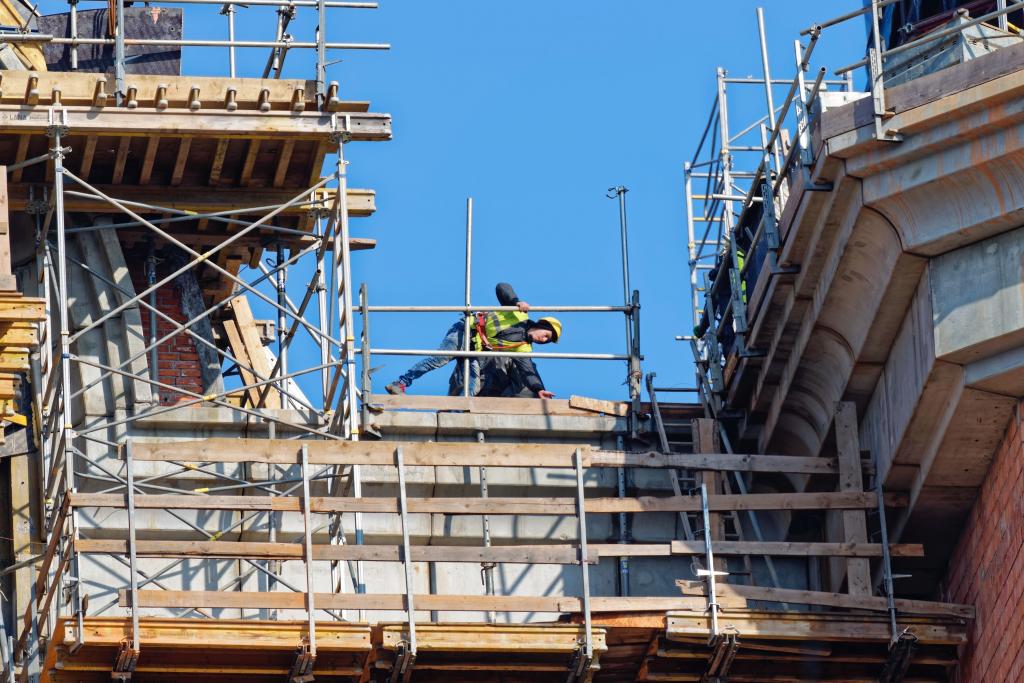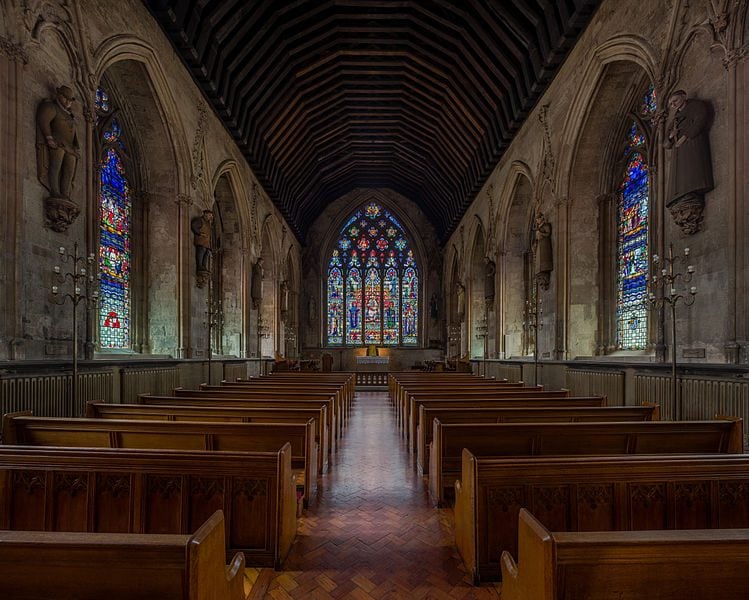
A bit of context: last week, the Archdiocese of Chicago hosted a “summit” for all its priests and other parish staff (deacons, pastoral associates, etc.) during which Fr. James Mallon presented his parish renewal program, Divine Renovation. The person who pointed me to this said that it was his understanding that Cardinal Cupich intended for each parish to adopt this program, which had me immediately wary that a program in use by a small number of self-selected parishes could be scalable, especially if imposed on parishes rather than freely adopted by them. I asked around on Facebook and heard further skepticism, especially with respect to liturgy, which was characterized as “it means adopting Praise and Worship music.” So I borrowed the book which outlines the program and principles, aptly named Divine Renovation, to find out straight from the horse’s mouth what’s up, and will be blogging about this over the next couple days. (I need to hurry, though, as I need to give the book back!)
The first half of the book, more or less, is the “why” of it. What should Catholics be about, in the end? Too many Catholics, he writes, see evangelism as the “job” of the clergy. They might not voice it, but their mindset is still that of the “pray, pay, and obey” model, even if they would object that they don’t get told what to do. He also rejects the mindset typified by the (mythically-attributed) St. Francis quote of “preach the gospel at all times and, if necessary, use words,” that is, the idea that we hear so, so often, that no one really needs to say to anyone awkward and uncomfortable words such as “I believe that Jesus Christ is the source of our salvation,” but that we can do our evangelizing duty well enough by just being good enough people that others will say, “gosh, X is so nice, I wonder what motivates her.”
However, it is not an either/or situation, it is both/and, and both/and is a sound Catholic principle. The witness of life must come first, but it must lead to the word of life being proclaimed. (p. 29)
He also writes of false gospels that must be jettisoned to proclaim the true gospel. As a former Lutheran, the one that most resonated with me was Pelagianism, that is, the heresy that we earn our salvation, and that “Jesus’ saving act was to give us an example of pure love that could be imitated” (p. 62). Mallon asserts:
I believe that most churchgoing Catholics have been so deeply impacted by Pelagianism that they really do not grasp the fundamental message of the Good News of Jesus Christ. How many times have I heard Catholics say something like “If anyone deserves to be let into heaven, she does . . .”? . . . I remember about eight years ago being at a funeral of a parishioner. A brother priest preached on the text from John 14:6, where Jesus says, “I am the way, and the truth, and the life.” This priest told the people that Jesus was not the way to God in an exclusive sense, but in the sense that he showed the true way to live life through his loving example (p. 68).
What’s the consequence of this attitude? Not the version that I grew up with, some notion that God’s standards are surely so high that without salvation through Jesus, we’d all go to hell. Instead, for neo-Pelagians, salvation is earned by simply avoiding doing “really, really bad things,” which means that any notion of “the sheer audacity of God’s mercy” is also lost. If you don’t feel any particular need to have been saved, you likewise don’t have any joy at having been saved.
Mallon then gets into the “how,” and here I’ll just discuss the first part, the liturgy (since that’s as far as I’ve read).
As a further preface, Mallon is a fan of the concept that I’d first read about as a part of (some) evangelical churches: “belong before you believe,” that is, without watering down Catholic doctrine, we should nonetheless welcome into the community those who don’t (yet) believe as we do, and those who don’t (yet) behave as we’d like them to behave.
So his first objective is this: “giving priority to the weekend.” Given that most Catholics encounter the parish at weekend masses, the first priority among parish staff should be to make this a “wow” experience. If “the Eucharist is to be a foretaste of [the wedding] banquet” of the Kingdom of God, then great efforts should be taken. The notion that mass should last one hour, no longer, should be jettisoned. Visitors should be welcomed, both in the literal sense of being welcoming to them, and more broadly, with a welcome center and/or other ways to provide information to them about the church, and means for them to register as parishioners.
And, yes, music is a significant part of his “program.” He does advocate for “praise music” but with a much broader meaning than the “praise and worship” music with lyrics projected on screens, and the praise bands that come up for regular mocking on the Babylon Bee. This is one type of music that he supports, but alongside traditional music that has stood the test of time. In either case, the music should meet the standard of “beauty” and should be focused on praising God, rather than praising the community. (He doesn’t say so, but I suspect such Gather standards as “All Are Welcome”, “Gather Us In”, “I Myself am the Bread of Life” would fail this test.)
Hence, he does not, as I had initially understood from the first conversation, mandate that everyone switch to “praise music.” At his home parish, there are two masses with a praise band, one with traditional hymns sprinkled with chant and Latin and smells & bells (and not at some early-morning, old-people’s mass, either, but at 11:15), and a fifth with “typical parish hymnbook offerings.” All these masses have choirs rather than just cantors.
But — look, my own parish has a “praise band” at one of the masses. And the congregation, for the most part, listens just as passively as they do at the other masses. How do you get them to sing? Partly, he says, it’s about having actual hymns of praise, and having a congregation which actually feels the “joy of salvation” (p. 122), but he does actually prod them and take a look at this:
At the beginning of Mass, once I reach the presier’s chair, if we are singing a hymn of praise and it looks as if half of the church is attending a ventriloquist convention, I will invite the congregation to go back and sing a refrain again.
Holy ****! Can you imagine that?!
And if a parish, if my parish, misunderstands him entirely and thinks his message is “all praise band, all the time,” well, that’s a problem.
He also calls on priests to jettison the “shorter is better” mindset on homilies. His homilies are 15 – 20 minutes, and are very carefully prepared.
Which means that, quite honestly, so far, I like what I’m seeing, though I’m still wary of what’s coming up next (preview: small groups!).
Readers, if you have any experience with this program, please share it!
Image: https://www.pexels.com/photo/blue-sky-building-cathedral-city-880697/
















